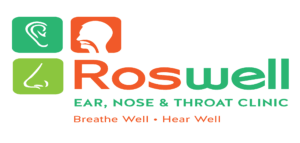Minimally Invasive Endoscopic Sinus Surgery
Voice & Swallowing Disorder Specialist
When patients experience a voice and swallowing disorder, the normal course of their lives is often disrupted. At the ROSWELL Center for Ear, Nose, Throat and Allergy they understand that a person’s voice is often their livelihood, and provide a number of treatment options for a wide range of conditions that affect vocal and swallowing functions.
In Office Procedures
According to a National Health Interview Survey, 30.8 million adults were diagnosed with sinusitis in 2017. That’s 12.5% of all adults. Sinus problems can arise from allergies, infections from bacteria, fungi or viruses, or polyps that grow on the lining of your sinuses.
Procedures of Sinuplasty
Depending on what is being done, a sinuplasty can take several hours to perform.
Endoscopy
An endoscopic guided biopsy uses a thin, lighted, flexible tube with a camera mounted on the end that provides images for a doctor while she collects a biopsy from a specific area. Your physician can see how and where your sinuses are blocked and use the instrument to take out a polyp or scar tissue.
As with other kinds of biopsy, the results will confirm whether or not the masses are cancerous and help to determine a treatment plan. Endoscopy is usually performed with a local or general anesthetic as an outpatient procedure. Your recovery is faster by not having your surgeon cut into your skin.
Balloon sinuplasty
Balloon sinuplasty is a newer type of surgery in which your surgeon inserts a thin tube with a small balloon at one end into your nose, guides it to the blocked area and inflates it to clear the passageway and allow your sinuses to drain better. A balloon sinuplasty is less painful and requires less recovery time because no tissue is cut or removed.
Symptoms of sinus surgery
Many factors can cause sinus problems from abnormal growths and blockages to infections and inflammation in the nasal passages.
Sinusitis
You may be suffering from swelling of the nasal sinuses or passages if you have the following symptoms:
- encounter bad-tasting post-nasal drip
- experiencing headaches
- experiencing thick and discolored nasal drainage
- have a regular cough
- have a stuffy nose
- if you feel pressure around your nose or eyes
- if you feel your head is congested
- your ears are blocked or you sense a change in your hearing
Nasal Polyps
You may be experiencing nasal polyps if you have swelling in the nasal lining inside your nasal passages and sinuses. These polyps can lead to breathing problems. The most common symptoms for nasal polyps include:
- decrease sense of smell or taste
- encountering post-nasal drip
- experiencing facial pain
- experiencing recurrent sinus infections
- having a runny nose
- noticing many headaches
- sensing a blocked nose and difficulty breathing
- snoring
- suffering from sleep apnea
Risks
There are always some risks involved in any surgery, and for sinuplasty, some of the complications can include bleeding, chronic nasal drainage, infection, and loss of sense of smell or taste. There can also be a breakdown or reoccurrence of the original sinus issues.
Recovery
Your recovery period will depend on your health and the type of surgery. The average recovery takes between three to five days.
- Avoid any strenuous activities as instructed by your surgeon
- Avoid blowing your nose for the first week after your procedure
- Ice pack wrapped in a towel can aid in stopping any bleeding
- Keep in mind that you may still get sinus infections
- Limit your regular activities for the first two weeks after your surgery
- Make sure to take all of your prescribed medications
- Nasal irrigation may be necessary
- Nasal packing may be used to help control bleeding
- When you go to sleep, keep your head raised to help with the swelling
- When you sneeze, it is best if you keep your mouth open to not put pressure on your nasal cavities
- You may experience mild discomfort and feel fatigue following your procedure
- You want to have a friend or family member drive you home after your procedure
Do not hesitate to get in touch with your surgeon if you experience any excessive bleeding, a fever greater than 101.5 F, if there is fluid draining from your nose, or increased swelling in your nose or eyes, severe headaches, or sharp pain.
Top 10 Benefits of Sinuplasty
Here are some of the benefits of getting sinus surgery:
- Better access to the lining of the sinuses for sprays and rinses
- Boost your sense of smell
- Can help prevent sinus infections
- Fewer headaches
- Improved quality of life
- Less facial pain
- Long-lasting results
- Minimally invasive procedure
- Minor discomfort after your surgery
- Will aid drain your sinuses
